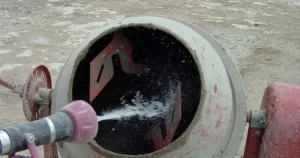Concrete is the backbone of modern construction. But did you know that something as simple as the water used in your concrete mix can make or break a structure? That’s where sweet water supply comes into play. Let’s dive deep into why this unsung hero is so crucial.
Concrete isn’t just cement and gravel. Water plays a key role in activating the cement and binding all the components together. Without the right water, your concrete could crumble—literally.
What Is Sweet Water?
“Sweet water” might sound poetic, but in construction terms, it simply means clean, fresh water—typically free of salts, acids, and harmful chemicals.
Sweet water refers to water with low concentrations of dissolved salts and minerals. It’s generally considered safe for drinking and, more importantly here, perfect for concrete.
The main difference lies in salinity. Sweet water has little to no salt, while salt water, like seawater, is loaded with it. Salt in concrete = trouble.
The term comes from its contrast to salty or brackish water. While it’s not actually sugary, it’s “sweet” in the sense of being mild and usable.
Concrete Basics
Key Ingredients in Concrete
Concrete is made of four main ingredients:
-
Cement
-
Aggregates (sand and gravel)
-
Water
-
Admixtures (sometimes)
Each plays a role, but water is the activator—it kicks off the whole process.
Role of Water in Concrete Mixing
Water hydrates cement. This reaction creates calcium silicate hydrate (C-S-H), the glue that binds aggregates. But the water must be clean!
Once concrete is poured, it needs time and moisture to gain strength. That’s curing—and yes, sweet water is vital here too.
Sweet Water in Concrete Mixing
When cement meets water, it reacts and hardens. The better the water quality, the better the reaction—and the stronger the result.
Impurities like chlorides, sulfates, or organic matter can mess with hydration. They weaken the bond and might cause cracks later.
Common Water Contaminants and Their Impacts
-
Chlorides: Cause steel reinforcement corrosion
-
Sulfates: Lead to expansion and cracking
-
Organics: Slow down the setting time
-
Acids: Neutralize the cement’s alkalinity
Benefits of Using Sweet Water in Mixing
-
Ensures strong bonding
-
Prevents corrosion of steel bars
-
Improves workability
-
Increases durability
Sweet Water in Concrete Curing
Curing keeps concrete moist while it hardens. Think of it like letting bread rise—it needs the right environment.
Sweet water helps retain moisture, especially in hot climates. It keeps hydration going and stops the surface from drying out.
It avoids salt buildup, prevents shrinkage cracks, and ensures long-term durability—win, win, win.
Standards and Guidelines
International Standards for Water in Concrete
-
ASTM C1602 and IS 456:2000 recommend potable water (a.k.a. sweet water).
Acceptable Limits of Water Impurities
-
pH should be between 6-8.5
-
Chlorides < 500 ppm
-
Sulfates < 1000 ppm
Testing Methods for Water Suitability
-
pH test
-
Total dissolved solids (TDS)
-
Chemical analysis
Common Sources of Sweet Water
Usually safe and regulated. Most construction sites rely on this. Can be sweet or saline—testing is key.
Naturally low in salts but must be stored and filtered properly.
Conclusion
Water may seem like the simplest ingredient in concrete, but it’s the most underrated. Using sweet water in both mixing and curing isn’t just a best practice—it’s essential. It ensures structural integrity, prevents corrosion, and increases durability. If you’re serious about quality, sweet water should be your non-negotiable.
FAQs
1. What happens if salt water is used in concrete?
It can cause steel corrosion, reduce strength, and lead to long-term damage.
2. How can I test if my water is sweet water?
Check pH levels, TDS, and chemical content using standard lab tests.
3. Can I use filtered sea water for concrete?
Not recommended unless it meets strict purity standards—generally, no.
4. Is rainwater safe for mixing concrete?
Yes, if it’s collected and stored properly without contaminants.
5. What’s the easiest way to store sweet water on-site?
Use clean, sealed tanks placed in shaded areas to avoid contamination.




